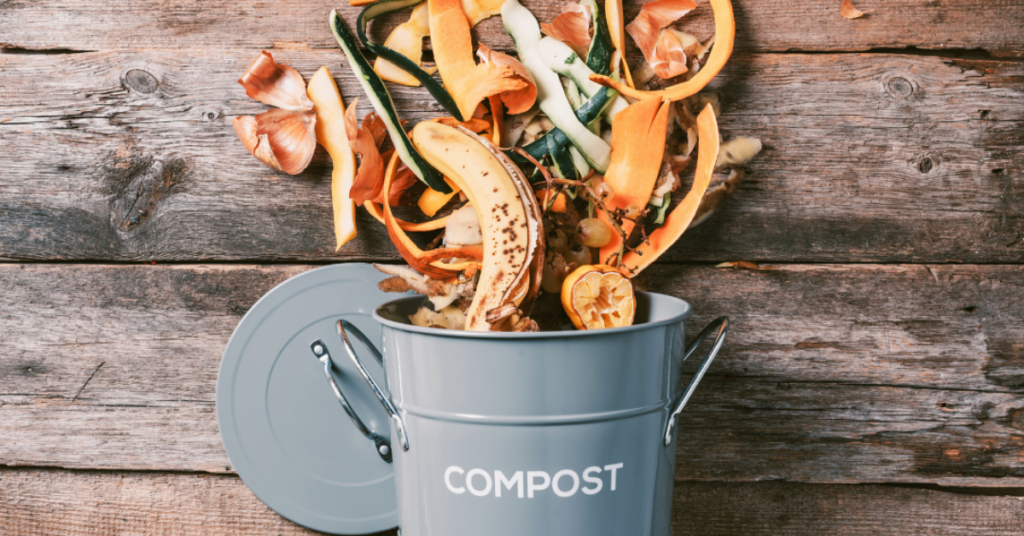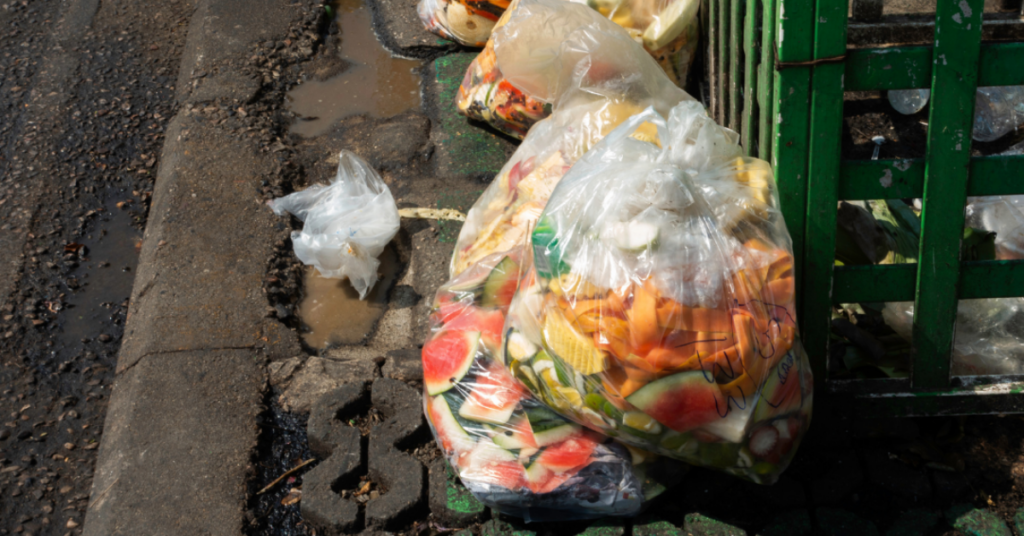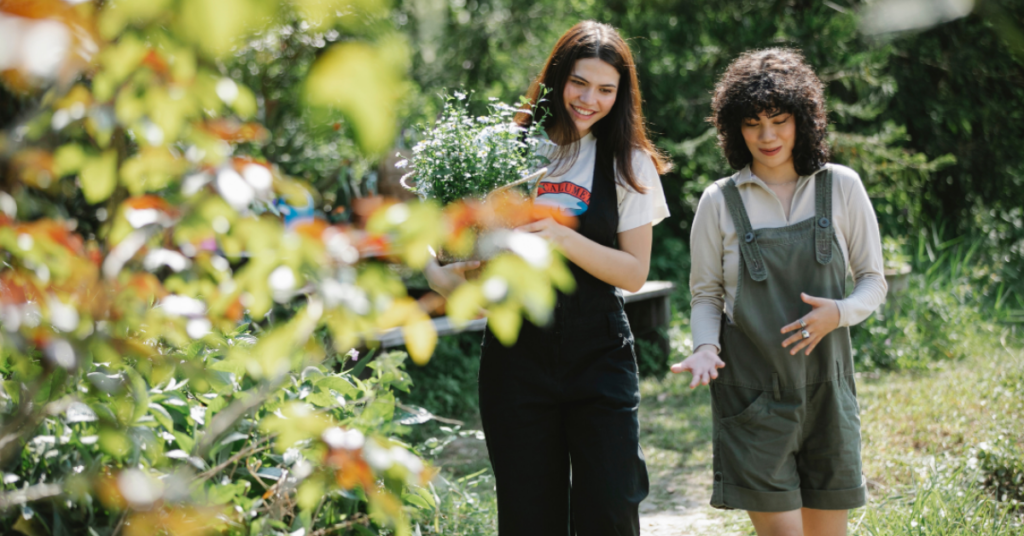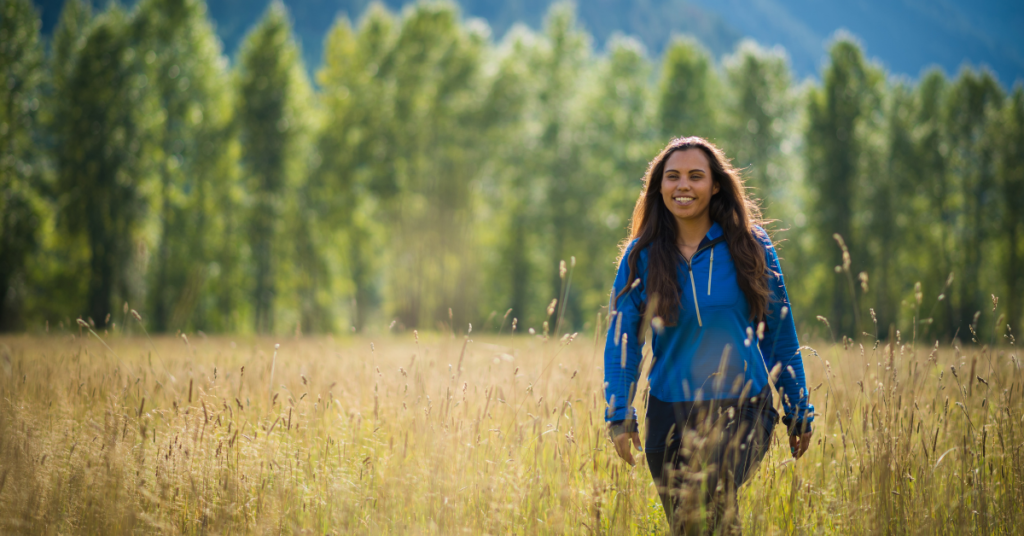
Source: Canva
In Aotearoa New Zealand, each household throws away 79 kilograms of food a year. That’s the equivalent of 888 apples or binning 55 chickens (not to be confused with bin chickens).
In Australia, it’s 312 kilograms of food per person that’s wasted, or the equivalent of around $2,500 of groceries. But it’s not just in our region that food waste has gotten out of control. Right now, one third of the world’s food is thrown away, where it rots in landfill. In fact, if ‘food waste’ was a country, it would be the third largest emitter of greenhouse gases in the world, after the US and China. Take that in for a moment.
In a world where one in nine people struggle to access nourishing fare, food waste is our planet’s dirty little secret. Highlighting a great opportunity for businesses to avoid or capture the majority of their waste and prevent it from going into landfill, we take a deep dive into food waste and what businesses can do to be part of the solution this Composting Week.

You get a compost, and you get a compost
If only Oprah gave out composts not cars, we might not be in this mess. Food waste has significant and devastating impacts on the economy and the environment. Be it food that never leaves the farm, food that is lost during transport, or food that is wasted from the hospitality sector and households – it is rife both in household and company environments.
Whether your business hosts catered meetings, staff eat at work, or you operate in hospitality and food retail, a recent study by Sustainability Victoria and the Metropolitan Waste and Resource Recovery Group (MWRRG) found that between 93-99% of food waste for business was avoidable or recyclable. In fact, Project Drawdown found that reducing food waste is the third most effective method in addressing climate change.
Why food waste matters more than you think
When food decomposes in landfill, greenhouse gases such as methane are emitted. The Intergovernmental Panel on Climate Change’s (IPCC) 6th Assessment Report recently published that methane released from food waste is 28 times stronger than carbon dioxide and that 10 percent of global greenhouse gas emissions are produced from food waste or food that has been produced but not been eaten.
Food waste not only contributes to environmental degradation and a host of other climate issues, but it reduces air quality, public health and contributes to food insecurity.

Source: Canva
While it’s common to think that food waste thrown into landfill breaks down easily, particularly fruit and vegetables or organic materials, it couldn’t be further from the truth. In the late Anthony Bourdain’s documentary Wasted!, he reveals that one head of lettuce takes up to 25 years to decompose in landfill, emitting significant greenhouse gases. That’s the same amount of time that it takes a pair of leather shoes to break down and almost as long as it takes nylon fabric to decompose – and all for lettuce.
Another devastating impact of food waste is that precious resources such as water, soil and energy used in the farming, production, packaging, and transportation of food, also goes to waste. These negative effects are compounded with the sheer volume of food thrown away.
We live in a world where, while almost half of the world’s fruit and vegetables are wasted, one in nine people don’t have access to nourishing food. With projections that the world’s population will increase by a further 2.2 billion by 2050, food security and food wastage has become an increasingly pressing issue on a global scale.
Contributing to a multitude of issues that many businesses in the B Corp movement are passionate about, from climate change to supply chains, eliminating or reducing food waste might just have skyrocketed to the top of the menu.
Getting your hands dirty
Composting is a natural circular process by which organic materials such as food and paper are recycled into rich, nutrient-dense soil (or compost). It provides the perfect environment for organic matter to decompose quickly, facilitated by temperature, bacteria, fungi and other organisms like worms or sowbugs. This not only reduces landfill and methane emissions, but it results in a product that is useful for growing food, gardening, landscaping, and maintaining houseplants.
Organic matter breaks down in a non-toxic way only in the right environment, such as a compost.

Want to learn more about what can and can’t be composted? Try your local council’s website and be sure to visit fellow B Corps like BioPak or Going Green Solutions for more handy tips!
Composting is everyone’s business
There are numerous types of composting from vermicomposting (worm farm) to in-vessel composting that can help your business reduce its carbon footprint. If having an in-office composting program is possible for you, Compost Magazine has curated a detailed list of composting methods to help you choose the one that best suits your needs.
Worried it will take up too much space or stink out your office? Ne’er fear, the Compost Crew are here, and they’re ready to debunk some common misconceptions about composting.
If you want to get more waste-savvy and support fellow B Corps in the process, Biome Ecostore has some great options to help you get your office compost set up and there are plenty of B Corps such as Better Packaging Co and BioPak who provide compostable packaging solutions for everyday needs – from shipping parcels that completely break down to knives and forks for your next event. The best part? They can be circulated through your own composting system and kept out of landfill.
Search ‘compost,’ ‘recycling’ or ‘eco’ on the B Corp Directory to find companies leading the zero waste revolution ↗

Source: Unsplash by Nareeta
Getting scrappy for the planet
Food waste is increasingly at the forefront of citizen’s minds, and councils across Australia and Aotearoa New Zealand are stepping up to the plate. ShareWaste NZ is an initiative funded by Auckland Council connecting people to successfully recycle their food scraps, and they also operate in Australia.
Then there’s ‘FOGO’ an Australian initiative, and no it’s not ‘Fear Of Going Out.’ FOGO or ‘Food Organics and Garden Organics’ involves a kerbside collection of organic waste, with over 200 local councils committing to it so far. This initiative allows residents to dispose of food waste with garden matter, to be recycled into compost and then used within the municipality.
Visit ShareWaste’s map to see nearby locations to recycle your food scraps ↗
For your business, there’s also B Corp BioPak’s partnership with non-profit Compost Connect, designed specifically for businesses to help you cut the rubbish. Covering over 2,200 postcodes across Aotearoa New Zealand and Australia, it’s a great way for business to get scrappy for the planet:
Step up to the plate in your local neighbourhood
Every business in the B Corp movement knows that community is a powerful force of social and environmental change. So, if you wanted to go a step further than recycling food waste or replacing your packaging, community gardens and compost hubs can be found throughout Australia and Aotearoa New Zealand.
These spaces provide not only delicious fresh produce and circular waste solutions, but ingrained in their existence is a sense of connection, belonging and environmental stewardship.
Membership to community gardens can also provide plenty of education around gardening and food preservation, not to mention that labouring through the gardening process and seeing your scraps reborn as rich soil can provide a sweet sense of satisfaction and gratitude.

Source: Canva
First Nations’ wisdom
In many ways, the urgency and scale of our food waste disaster is both a symptom and a legacy of the ongoing impacts of colonialism, patriarchy and capitalism – global systems that many in the B Corp movement are trying steadily to dismantle and rebuild.
A 2021 study by the UN Food and Agriculture Organisation demonstrated that Indigenous Peoples’ food generation techniques, such as gathering, hunting and shifting cultivation are crucial to natural and cyclical production of food. The study, which drew wisdom from across the nearly 500 million people in more than 90 countries who self-identify as Indigenous Peoples, offers rich opportunities for food security and biosecurity preservation.
Eight Indigenous Peoples’ food systems are examined in depth and revealed to be among the most sustainable in the world in terms of efficiency, no waste, seasonality and reciprocity.
Mobile practices such as nomadism also contribute to the natural and biodiverse-protecting relationship Indigenous Peoples’ have with the environment. These traditions have been practised for millennia, and are proof that food generation and consumption can be done in a way that enables recovery and replenishment of habitats and ecosystems.

Source: Canva
The study also found that Indigenous Peoples’ food systems effectively achieved zero hunger in certain areas across the world. Resilience, adaptiveness, deep observation, and intuitive knowledge of natural relationships were key factors contributing to the balanced symbiosis between Indigenous People and the environment.
While growing and eating local seasonal produce and purchasing or trading only what you are capable of consuming are surface-level lessons that First Nations people have practised for centuries, they nonetheless provide a roadmap for all of us in creating a more regenerative and thriving society, with less waste.
Don’t wash your hands just yet
In order for composting and the diversion of food waste from landfill to be effective in reducing greenhouse gas emissions, society at all levels must take responsibility to make a change, including businesses, governments, communities, and households.
Our top three tips to reduce your food waste this Composting Week:
- Be mindful of your food purchasing, only buying or growing what you need, and plan ahead to minimise waste
- Read up on the National Food Waste Strategy (Aus) or the Waste Minimisation Fund (NZ) and the detrimental effects of food waste, and take responsibility for educating those around you
- Support a B Corp who is leading the zero waste revolution by searching ‘compost,’ ‘recycling’ or ‘eco’ on the B Corp Directory
A big thank you to Adele D’Souza our Editorial Intern for this thought-provoking piece in honour of Composting Week and to all of the B Corps leading the zero waste revolution.

